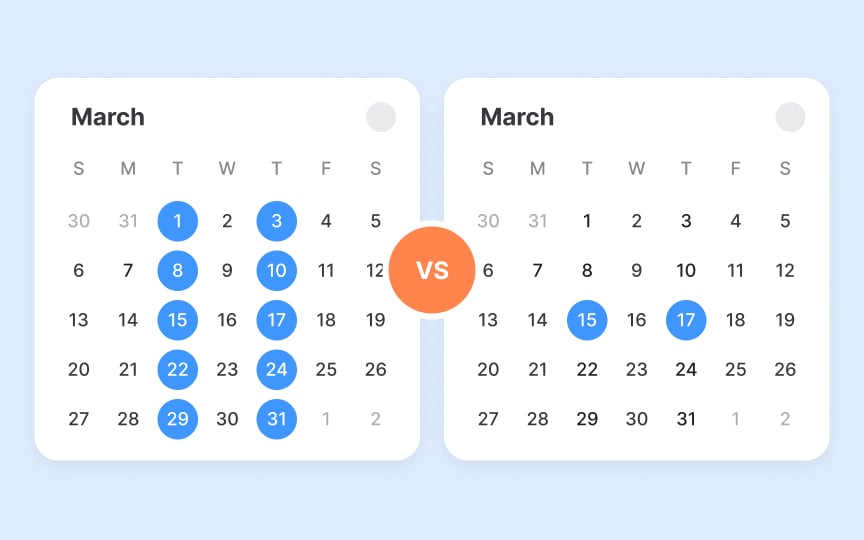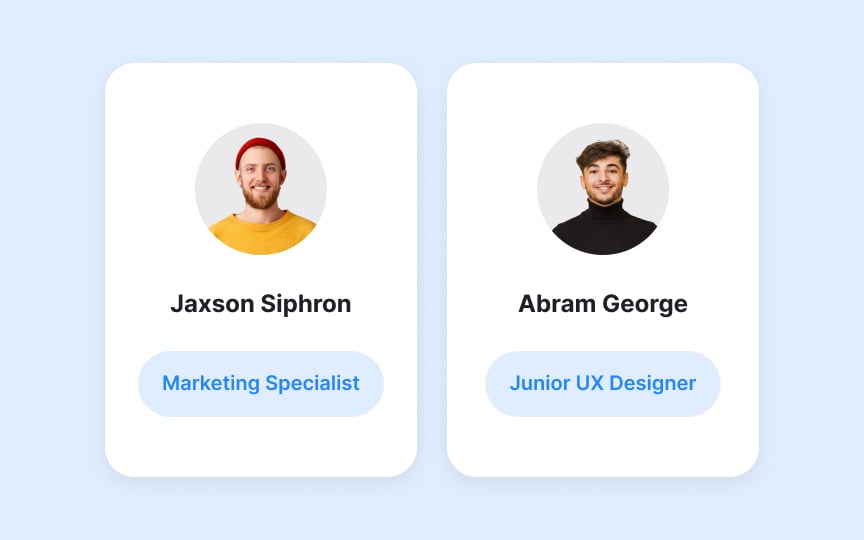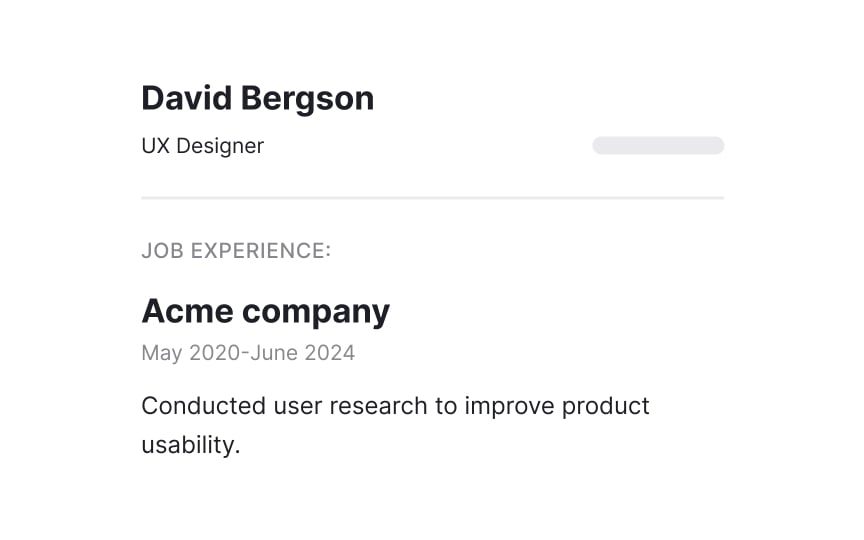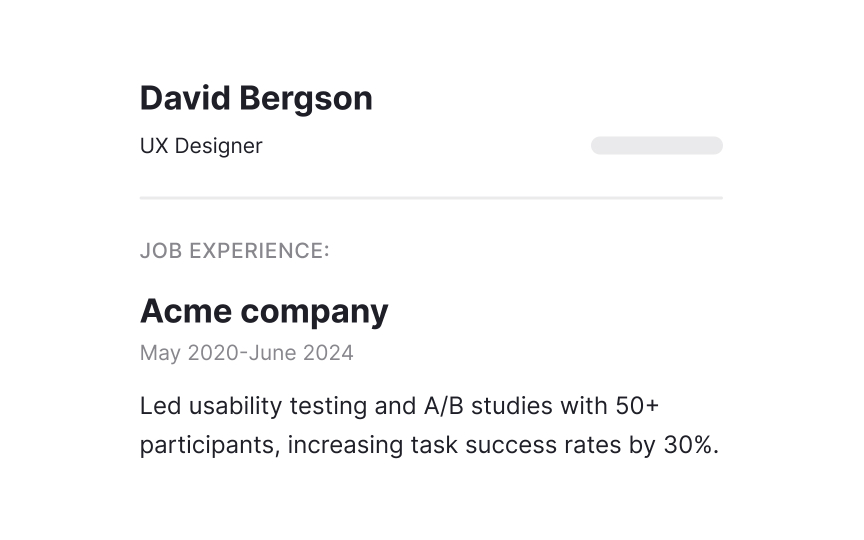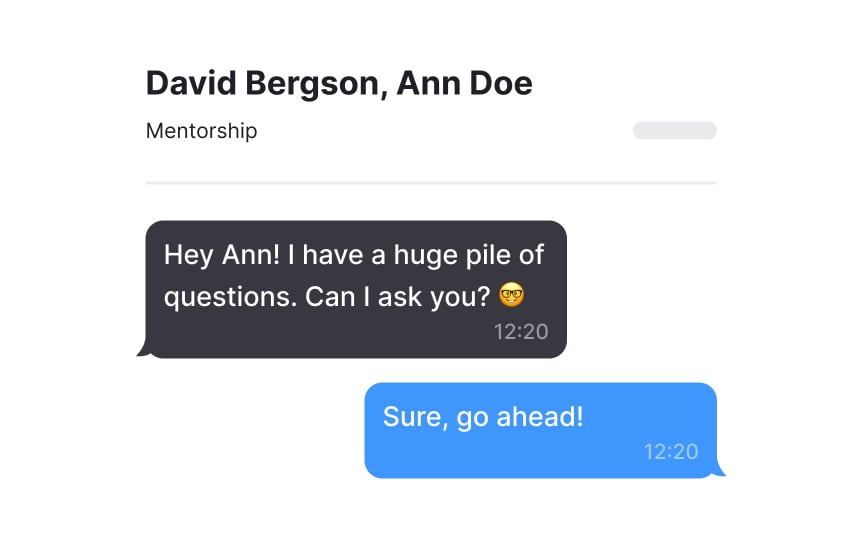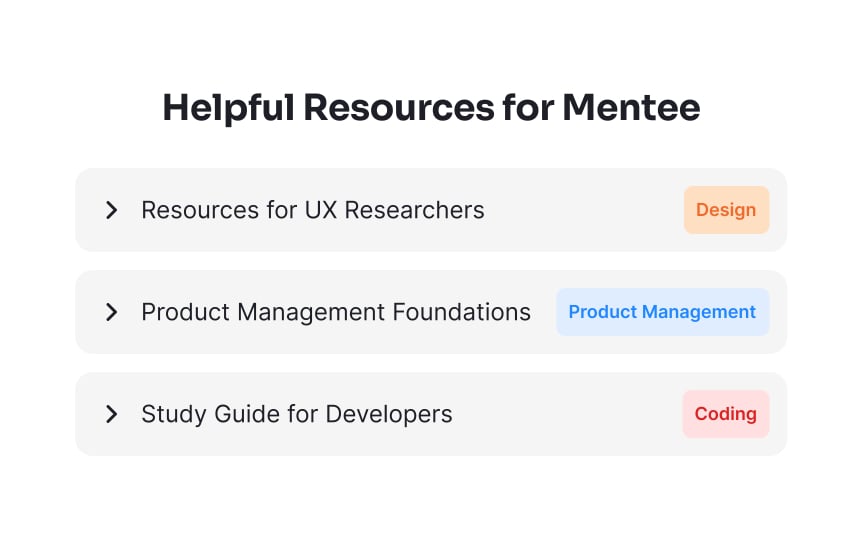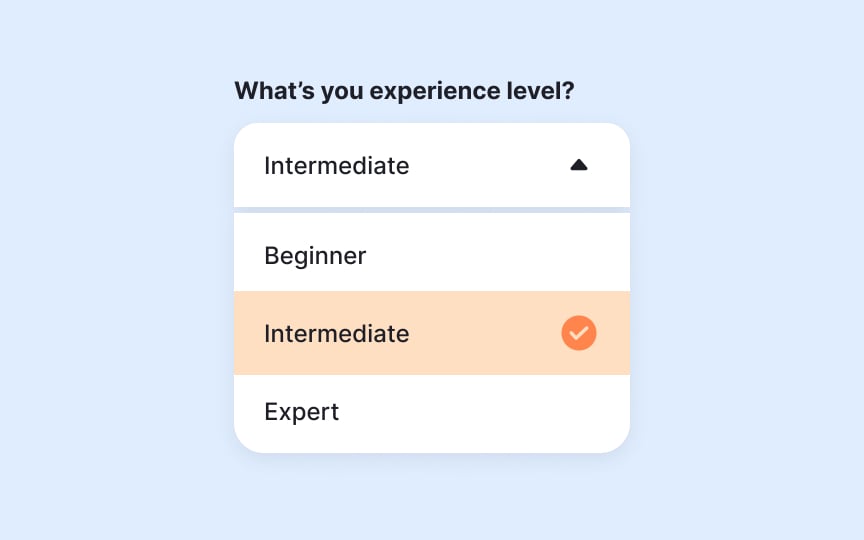The Benefits of Mentorships
Explore the numerous benefits of mentorship for personal and professional growth
Participating in a mentorship program is a time-consuming process that involves a lot of self-motivation and discipline — are the rewards worth it? Absolutely, yes. The benefits of mentorship are numerous and can add far-reaching value to your career and professional journey.
A good mentor can even turn your life around and make your life on the whole qualitatively better by teaching you to think, articulate, act, and make decisions better in your everyday life.
Information, knowledge, and feedback can be found everywhere. There are friends and family who can tell you what they think about your work, and there are numerous free resources online that can help you upskill. But, a mentor’s role in your career exceeds these things.
A mentor goes above and beyond the polite feedback of your peers or loved ones or the detachment of educational resources. However, a mentor is not meant to be your 24x7 cheerleader, and it can be quite disappointing if you expect them to get behind your every idea.
A mentor’s role is to objectively analyze your work and make sure you’re on the right career trajectory. They do not hold back on the criticism, but they also make sure that it is constructive. A good mentor can also open a lot of doors for you in terms of networking and career opportunities.
A mentor can help explain core UX topics, clarify concepts, and guide you through tools and best practices. They can suggest learning resources, share real-world context, and help connect theory to everyday design work. However, mentoring alone cannot replace professional UX training or certification, which offers structured learning, hands-on practice, and recognized credentials that help users stand out in the job market.
What mentoring does add is practical, situational support. For example, a mentor can review a portfolio case study and point out gaps in problem framing, help rework confusing flows in a real project, or explain why a design decision might not work in a team setting. They can also help you prepare for interviews, talk through feedback from hiring managers, or navigate common workplace challenges.
This kind of applied guidance complements formal learning and helps mentees turn knowledge into job-ready skills faster.
In the history of
There are no set outcomes that each mentee will experience. Each outcome is as unique as the needs and aspirations of the individuals themselves. Therefore, these things have to be defined before the program starts.
Different people may have different expectations from a mentorship program. Some examples of goals include: landing a design job, switching career paths from writing to design, improving design skills, learning the
Getting involved in a
Ground rules between the mentor and mentee must cover:
- How often they will connect and interact
- How long each session will last
- Whether the meetings will be online or offline
- How much confidentiality is expected of both parties
- The end goals and milestones of the mentorship program
This list can include many more aspects according to the preferences and needs of the mentor and mentee. Bear in mind that once these ground rules are set, going back on one’s commitment without explicitly discussing it with the other party can come across as unprofessional and rude.
While a mentor can actively suggest how to structure the mentorship and what to achieve together during sessions, it is important that the mentee is proactive in expressing their needs, carrying out activities and reaching out for meetings if needed.
The most noteworthy benefit of
Almost everyone can benefit from mentorship, including:
- Inexperienced design enthusiasts who are just starting out in the space
- Students looking to find their first internship or job
- Self-taught individuals who want professional guidance to round out their skill set
- Junior or mid-level designers looking to grow their skills and navigate the workplace effectively
Ultimately, mentorship acts like a compass, allowing people who know where they want to go find the direction and get there.
In the job market, you may think that you come across a certain way to prospective clients or employers when in reality, the picture you paint is entirely different. Having an experienced mentor can help avoid this issue altogether, as they have been around in the industry long enough to know its ins and outs.
Using your mentor’s vast expertise and experience to your advantage, you can learn what to do and what not to do in the professional sphere.
The skills might include how to:
- Present your resume or CV
- Create an impressive portfolio (if relevant to your career)
- Conduct yourself in a networking event or
interview - Pitch to clients
- Present your work
- Communicate effectively with other designers, developers, and stakeholders
For example, you may think of a particular trait of yours as a weakness, but your mentor might be able to get a new angle on it and perhaps even turn it into a selling point![2]
Feedback is a double-edged sword — it can be incredibly helpful at times and counterproductive at others. However, a good mentor will be able to give you constructive feedback on your work in a way that builds you up instead of breaking you down.
Whether it is for your resume, CV, portfolio, cover letter, or latest project, a good mentor will challenge you with feedback to bring out your full potential without making you feel like you’re inadequate.
Moreover, constructive feedback does not just involve criticism from the mentor on what the mentee can do better — it also involves pointing out what the mentee is doing right so that it can be replicated in the future by the mentee.
It is safe to say that you can think of your mentor as a highly effective search engine capable of giving you the most accurate and reliable answers to your questions.
Sure, you can look things up on the internet, but what about times when your queries are too specific and do not apply to the general populace? More often than not, you’ll find yourself in work situations that only experienced individuals in your industry will be able to understand and help you out with. For instance, when you want help understanding a specific design theory or you're trying to troubleshoot a complex technical problem that isn't well-documented, your mentor becomes your best resource.
This is not to say that your mentor will immediately know the answers to all your questions, but a good mentor will attempt to help you find answers.
The duration of work experience is sometimes not a clear indicator of the seniority level of a person. There could be a software developer with 1 year of experience who possesses the skills and problem-solving abilities of a senior developer, or a developer with 3 years of experience who is yet to develop the skills required for a higher-level position.
Once a mentor fully understands your strengths, weakness, and where you stand, they can help assess your seniority level.
Knowing your seniority level can help you:
- Find jobs that are on par with your skills and abilities
- Avoid or overcome imposter syndrome
- Build confidence
- Understand where you’re lacking and take necessary steps to hone those skills
Mentors can show you career options you didn't know existed. With their experience and connections, they can help you see different paths you could take in your field.
A good mentor helps you understand various ways your career could grow, including:
- Common promotion paths within companies
- Special roles that use specific skills
- New opportunities created by changes in your industry
- Different paths that might better match what you're good at
- Topics to explore to have a more appealing profile for recruiters
While mentors can explain these different paths and share what worked or didn't work for others, they know that career choices are personal. Their job is to show you options and what might happen with each, while understanding that you must choose the path that fits your own goals and life situation.
Similar lessons

Common Designer Roles

Devices and Display Terminology

